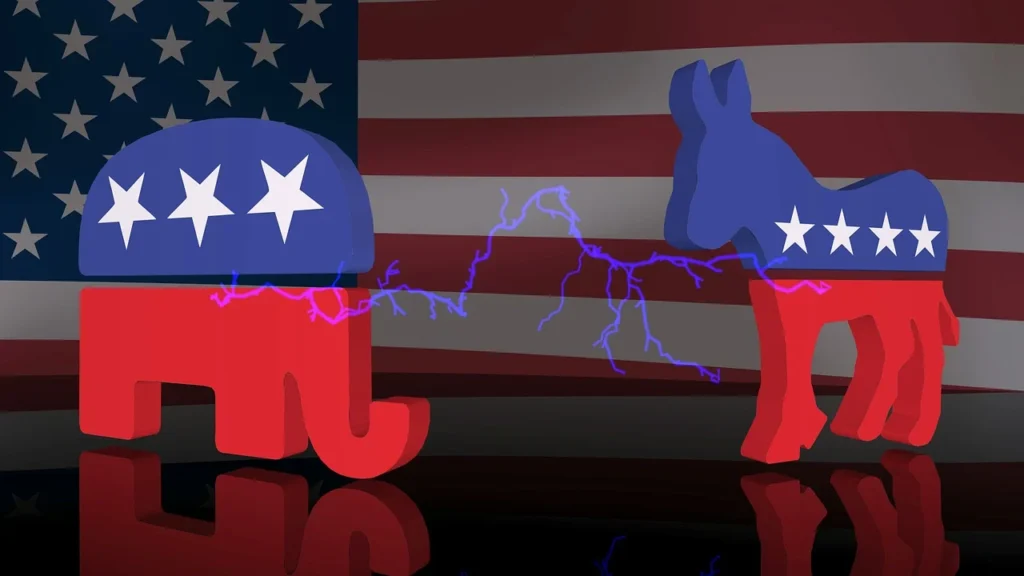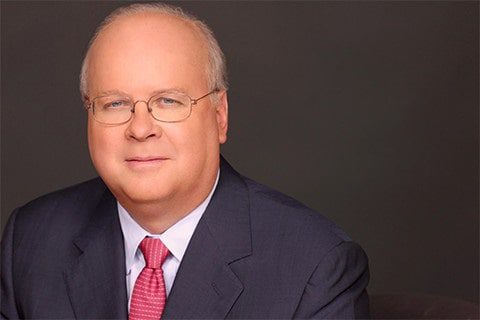
OPINION
By Karl Rove
No third-party candidate will win the 2024 presidential election or even a single state. But a third-party candidate could decide the election’s outcome.
The ones who matter are independents Robert F. Kennedy Jr. and Cornel West, the Green Party’s Jill Stein, and a yet-to-be-nominated Libertarian Party candidate. None are close to leading in any poll, nationally or in a single state.
No third-party candidate has ever won the presidency. The only one to run second was former President Theodore Roosevelt in 1912. The last third-party candidate to carry a state was George Wallace in 1968, who won five in the Deep South.
Still, third parties could decide the 2024 contest by pulling votes from Joe Biden or Donald Trump and tipping key states to the other candidate. In 2016 the Green Party’s candidate, Ms. Stein, got more votes in Michigan, Pennsylvania and Wisconsin than Mr. Trump’s margin of victory in those states. If you assume most of those votes would have gone to Mrs. Clinton, Ms. Stein cost her the White House.
The same thing happened in 2020. The Libertarian candidate, Jo Jorgensen, took more votes in Arizona, Georgia and Wisconsin than Mr. Biden’s victory margin.
Since this year’s election undoubtedly will be tight, third-party candidates have both major parties nervous. Democrats are particularly concerned that Messrs. Kennedy and West and Ms. Stein could siphon off black, Hispanic, young and progressive voters.
Democrats are extremely unsettled by Mr. Kennedy, whose name recognition is much better than most third-party hopefuls. He’s the fourth Kennedy to seek the presidency, following John F. Kennedy in 1960; his father, Robert, in 1968; and Ted Kennedy in 1980. RFK Jr. is a longtime environmental activist and lawyer who has sued companies, states and local governments over pollution.
Though this election will likely come down to a few toss-up states, any third-party candidate must be on the ballot in nearly every state before voters will consider him seriously. The Kennedy campaign says he’s now on the ballot in 14 states with 201 electoral votes. Only two, Nevada and Michigan, are battlegrounds. The campaign is working in 33 other states where the window for collecting signatures is open.
Besides trying to undermine Mr. Kennedy’s effort to gain ballot access, the Democratic National Committee and Biden campaign are trashing him regularly. They even pulled together an army of his kin to endorse Mr. Biden, making future family get-togethers awkward.
Mr. Trump veers back and forth from dismissing Mr. Kennedy as a “Radical Left Lunatic” to calling him “a nice guy.” But as one of the world’s pre-eminent antivaccine activists, Mr. Kennedy might also be a threat to Mr. Trump’s re-election hopes.
Mr. Kennedy created the largest antivax group in the U.S. and has long argued that vaccines cause autism and needless deaths. On Sunday in Colorado, he offered 1,200 enthusiastic supporters enough weird theories to qualify as a QAnon convention keynoter. He asserted that the CIA is a bigger threat to America than China, that the Seventh Amendment right of trial by jury is routinely violated, and that a “war machine” is working with corrupt U.S. corporations and Washington to enrich itself at our expense.
Artilce first appeared in the Wall Street Journal

Karl Rove served as Senior Advisor to President George W. Bush from 2000–2007 and Deputy Chief of Staff from 2004–2007. At the White House he oversaw the Offices of Strategic Initiatives, Political Affairs, Public Liaison, and Intergovernmental Affairs and was Deputy Chief of Staff for Policy, coordinating the White House policy-making process.
Mr. Rove has been described by respected author and columnist Michael Barone in U.S. News & World Report as “…unique…no Presidential appointee has ever had such a strong influence on politics and policy, and none is likely to do so again anytime soon.” Washington Post columnist David Broder has called Mr. Rove a master political strategist whose “game has always been long term…and he plays it with an intensity and attention to detail that few can match.” Fred Barnes, executive editor of The Weekly Standard, has called Mr. Rove “the greatest political mind of his generation and probably of any generation. He knows history, understands the moods of the public, and is a visionary on matters of public policy.”
Before Mr. Rove became known as “The Architect” of President Bush’s 2000 and 2004 campaigns, he was president of Karl Rove + Company, an Austin-based public affairs firm that worked for Republican candidates, non-partisan causes, and non-profit groups. His clients included over 75 Republican U.S. Senate, Congressional, and gubernatorial candidates in 24 states, as well as the Moderate Party of Sweden.

